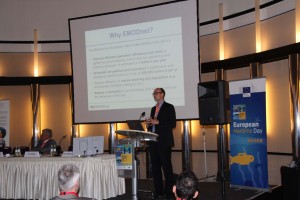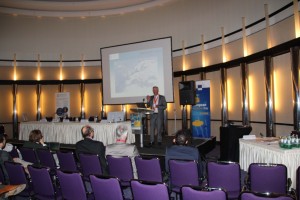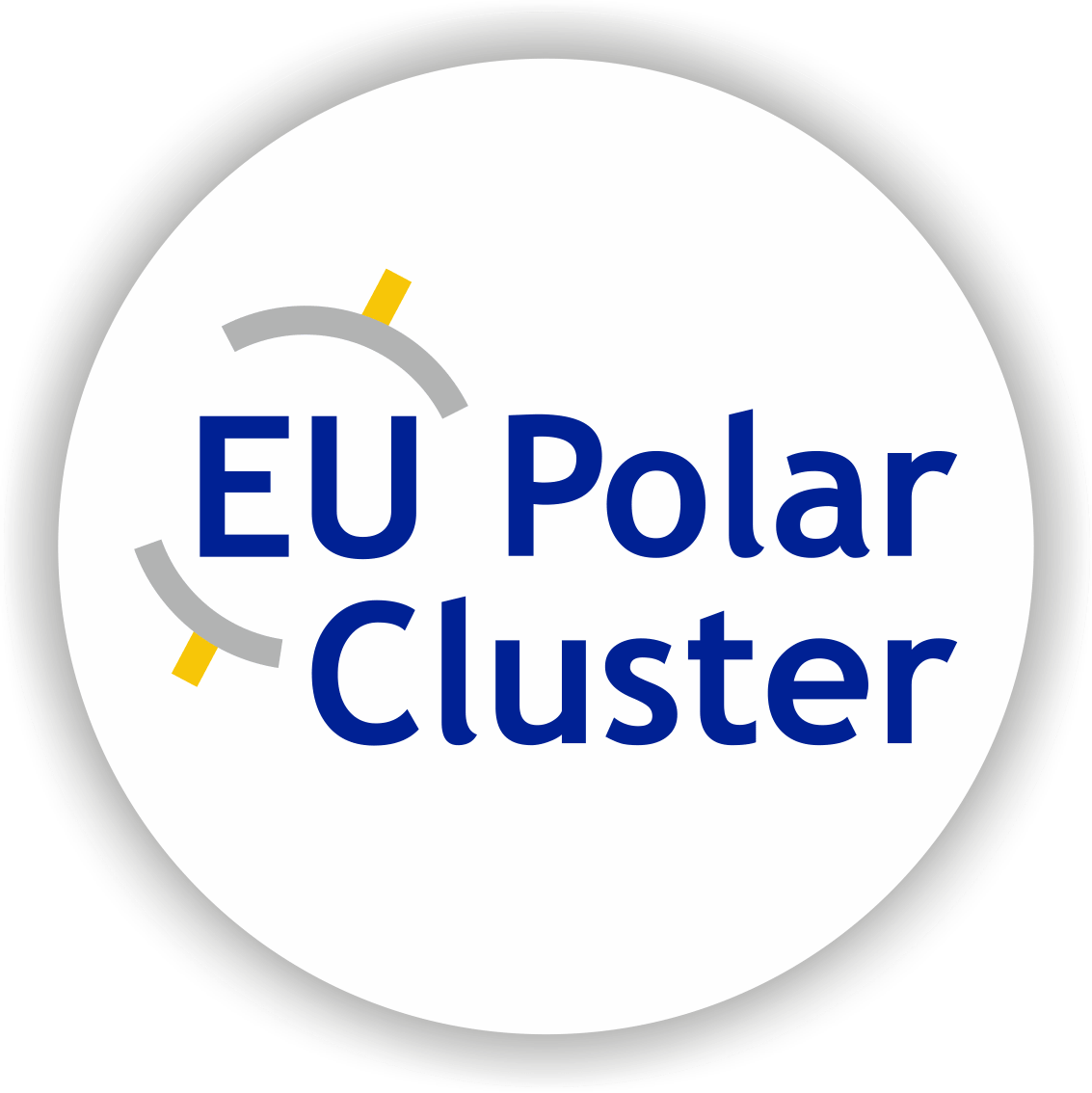Source: EMD & EMODnet Secretariat
Report from the joint EuroGOOS/EMODnet/EMB/JRC workshop at the European Maritime Day in Bremen, 19 May 2014: “From marine observations and data to information, knowledge and blue growth: towards an integrated end-to-end European Ocean Observing System (EOOS)”

EuroGOOS Chair Dr. Erik Buch (left) and Head of EMODnet Secretariat Jan-Bart Calewaert (right) speaking about the need for integrated sustained ocean observations and data (credit: EMODnet Secretariat)
- Ocean observations are essential for marine science, operational services and systematic assessment of the marine environmental status. All types of activities in the marine environment require reliable data and information on the present and future conditions in which they operate. Many maritime economic sectors (e.g. oil and gas exploration, maritime transport, fisheries and aquaculture, maritime renewable energy) directly benefit from easily accessible marine data and information in several ways: improved planning of operations, risk minimization though increased safety, improved performance and overall reduced cost. Other activities, such as deep sea mining and marine biotechnology, also benefit from specialized deep-sea observations that were not feasible until recently.
- The complexity and high density of human activities in European seas and oceans result in a high demand for marine knowledge in the form of data, products and services to support marine and maritime activities in Europe, stressing the need for an integrated European approach to ocean observation and marine data management (Navigating the Future IV, European Marine Board 2013). While Europe already has a relatively mature ocean observing and data management infrastructure capability, this is largely fragmented and currently not addressing the needs of multiple stakeholders. Mechanisms for coordinating existing and planned ocean observations using a system approach are needed for more integrated, efficient and sustained observations under the framework of a “European Ocean Observing System” (EOOS) following international practice (systems developed by USA, Australia and Canada) and the call of the EurOCEAN 2010 Conference Declaration .
- The integration of different national and local marine data systems into a coherent interconnected whole which provides free access to observations and data, as pursued by the European Marine Observation and Data Network (EMODnet) is of key importance for maritime sectors like fisheries, the environment, transport, research, enterprise and industry. However, much work still needs to be done in close collaboration with end-users, in particular industry, to further develop EMODnet into a fully functional, fit for purpose gateway to European marine data and data products taking into account requirements of multiple users.
- There is a need for science-industry partnerships to stimulate innovation and develop a successful EOOS that will further enhance the contribution of marine observations to economic activities relevant for Blue Growth in Europe. Innovative technologies, developed in collaboration between research scientists and the industry, have given several solutions during the past years for more robust, multi-parametric and systematic observations. This, in turn, is leading to new and more reliable operational services that support a wide range of maritime economic activities: fisheries and aquaculture, offshore oil and gas, marine renewable energy, maritime transport, tourism etc. Other services address the sectors of marine safety, climate and weather applications, as well as marine environmental assessment.
- At the end of the marine observations, data to knowledge cycle, activities and tools are needed to create added value products for specific stakeholders, including the wider public, such as the European Atlas of the Seas which allows professionals, students and anyone interested to explore Europe’s seas and coasts, their environment, related human activities and European policies. At the same time, it is critical to evaluate whether we are monitoring/observing what we actually need. Regional assessments such as performed by the newly established EMODnet sea-basin “checkpoints” could provide relevant information, among others to advise Member States about requirements for essential and optimal observation capability.
The post The importance of an integrated end-to-end European Ocean Observing System: key message of EMD 2014 appeared first on EuroGOOS.



















